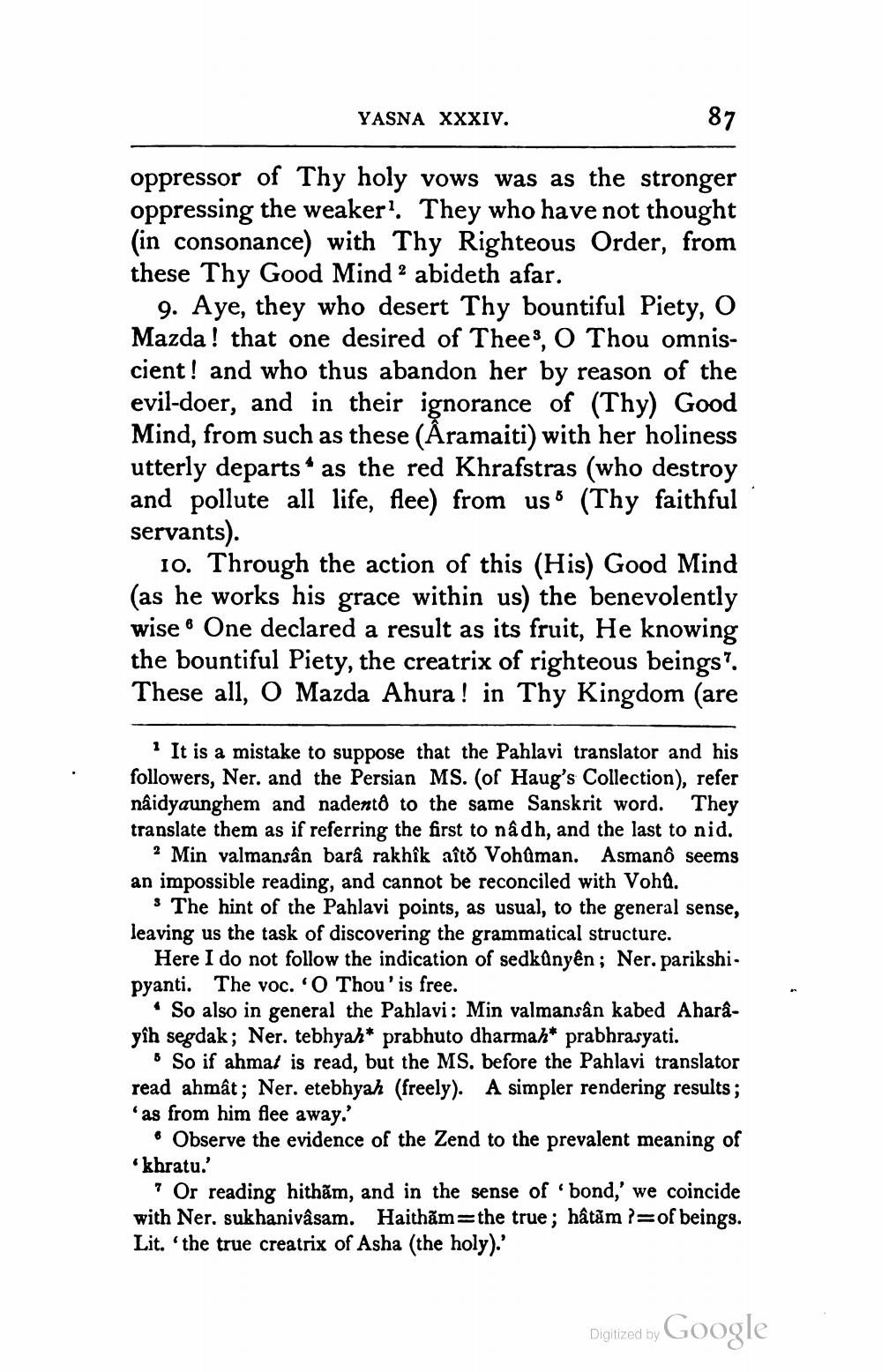________________
YASNA XXXIV.
87
oppressor of Thy holy vows was as the stronger oppressing the weaker?. They who have not thought (in consonance) with Thy Righteous Order, from these Thy Good Mind ? abideth afar.
9. Aye, they who desert Thy bountiful Piety, O Mazda! that one desired of Thee, O Thou omniscient! and who thus abandon her by reason of the evil-doer, and in their ignorance of (Thy) Good Mind, from such as these (Aramaiti) with her holiness utterly departs as the red Khrafstras (who destroy and pollute all life, flee) from uso (Thy faithful servants).
10. Through the action of this (His) Good Mind (as he works his grace within us) the benevolently wise o One declared a result as its fruit, He knowing the bountiful Piety, the creatrix of righteous beings?. These all, O Mazda Ahura ! in Thy Kingdom (are
1 It is a mistake to suppose that the Pahlavi translator and his followers, Ner. and the Persian MS. (of Haug's Collection), refer näidyaunghem and nadentó to the same Sanskrit word. They translate them as if referring the first to nadh, and the last to nid.
2 Min valmansân barå rakhîk aîtõ Vohman. AsmanÔ seems an impossible reading, and cannot be reconciled with Vohů.
The hint of the Pahlavi points, as usual, to the general sense, leaving us the task of discovering the grammatical structure.
Here I do not follow the indication of sedkůnyên; Ner. parikshipyanti. The voc. O Thou' is free.
* So also in general the Pahlavi: Min valmansân kabed Aharayîh segdak; Ner. tebhyah* prabhuto dharmah* prabhrasyati.
o So if ahmat is read, but the MS. before the Pahlavi translator read ahmât; Ner. etebhyah (freely). A simpler rendering results; as from him flee away.'
o Observe the evidence of the Zend to the prevalent meaning of khratu.
? Or reading hithăm, and in the sense of bond,' we coincide with Ner. sukhanivasam. Haithăm=the true; hâtăm ?=of beings. Lit. 'the true creatrix of Asha (the holy).'
Digitized by
Digitized by Google




